第33章 Chapter 8(3)
I would submit to anybody drawing a conclusion from one or two facts past contradiction,whether that play could have thoroughly failed which was not only not withdrawn at once but acted three nights in the same week,and years afterwards,reproduced at his own theatre,during my absence in Italy,by Mr.Phelps --the person most completely aware of the untoward circumstances which stood originally in the way of success.
Why not enquire how it happens that,this second time,there was no doubt of the play's doing as well as plays ordinarily do?for those were not the days of a 'run'.
.....
...This 'last word'has indeed been an Aristophanic one of fifty syllables:but I have spoken it,relieved myself,and commend all that concerns me to the approved and valued friend of whom I am proud to account myself in corresponding friendship,His truly ever Robert Browning.
Mr.Browning also alludes to Mr.Phelps's acting as not only not having been detrimental to the play,but having helped to save it,in the conspiracy of circumstances which seemed to invoke its failure.
This was a mistake,since Macready had been anxious to resume the part,and would have saved it,to say the least,more thoroughly.It must,however,be remembered that the irritation which these letters express was due much less to the nature of the facts recorded in them than to the manner in which they had been brought before Mr.Browning's mind.
Writing on the subject to Lady Martin in February 1881,he had spoken very temperately of Macready's treatment of his play,while deprecating the injustice towards his own friendship which its want of frankness involved:and many years before this,the touch of a common sorrow had caused the old feeling,at least momentarily,to well up again.The two met for the first time after these occurrences when Mr.Browning had returned,a widower,from Italy.Mr.Macready,too,had recently lost his wife;and Mr.Browning could only start forward,grasp the hand of his old friend,and in a voice choked with emotion say,'O Macready!'
Lady Martin has spoken to me of the poet's attitude on the occasion of this performance as being full of generous sympathy for those who were working with him,as well as of the natural anxiety of a young author for his own success.She also remains convinced that this sympathy led him rather to over-than to under-rate the support he received.
She wrote concerning it in 'Blackwood's Magazine',March 1881:
'It seems but yesterday that I sat by his [Mr.Elton's]side in the green-room at the reading of Robert Browning's beautiful drama,'A Blot in the 'Scutcheon'.As a rule Mr.Macready always read the new plays.
But owing,I suppose,to some press of business,the task was entrusted on this occasion to the head prompter,--a clever man in his way,but wholly unfitted to bring out,or even to understand,Mr.Browning's meaning.Consequently,the delicate,subtle lines were twisted,perverted,and sometimes even made ridiculous in his hands.
My "cruel father"[Mr.Elton]was a warm admirer of the poet.
He sat writhing and indignant,and tried by gentle asides to make me see the real meaning of the verse.But somehow the mischief proved irreparable,for a few of the actors during the rehearsals chose to continue to misunderstand the text,and never took the interest in the play which they would have done had Mr.Macready read it.'
Looking back on the first appearance of his tragedy through the widening perspectives of nearly forty years,Mr.Browning might well declare as he did in the letter to Lady Martin to which I have just referred,that her 'PERFECT behaviour as a woman'and her 'admirable playing as an actress'had been (or at all events were)to him 'the one gratifying circumstance connected with it.'
He also felt it a just cause of bitterness that the letter from Charles Dickens,which conveyed his almost passionate admiration of 'A Blot in the 'Scutcheon',and was clearly written to Mr.Forster in order that it might be seen,was withheld for thirty years from his knowledge,and that of the public whose judgment it might so largely have influenced.
Nor was this the only time in the poet's life that fairly earned honours escaped him.
'Colombe's Birthday'was produced in 1853at the Haymarket;and afterwards in the provinces,under the direction of Miss Helen Faucit,who created the principal part.It was again performed for the Browning Society in 1885,and although Miss Alma Murray,as Colombe,was almost entirely supported by amateurs,the result fully justified Miss Mary Robinson (now Madame James Darmesteter)in writing immediately afterwards in the Boston 'Literary World':'Introduction to the Study of Browning'.
'"Colombe's Birthday"is charming on the boards,clearer,more direct in action,more full of delicate surprises than one imagines it in print.With a very little cutting it could be made an excellent acting play.'
Mr.Gosse has seen a first edition copy of it marked for acting,and alludes in his 'Personalia'to the greatly increased knowledge of the stage which its minute directions displayed.